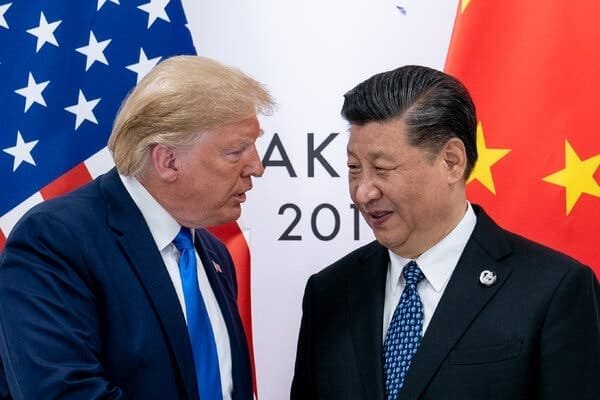
Taiwan’s National Security Bureau reports a 17% surge in cyberattacks originating from China, targeting government and critical infrastructure.
Taiwan Warns of Rising Chinese Cyberattacks, Expresses Concern Over ‘Online Troll Army’
As tensions between Taiwan and China continue to escalate, Taiwan’s National Security Bureau recently released a report The report notes an increase in cyberattacks originating from China and also expresses concern over Beijing’s ‘Online Troll Army,’ which is spreading rumors and dividing society in Taiwan This news was published on October 14, 2025. Let’s delve into this issue in detail. We’ll discuss the report’s data, history, impact, and China’s response.
Background of Taiwan-China Relations
Taiwan is a democratic island China considers it part of its territory Beijing claims Taiwan and attempts to subjugate it, but military and political tensions between the two have been simmering for years China conducts daily military exercises and sends ships and aircraft around Taiwan These are gray-zone strategies that exert pressure without resorting to war Taiwan is a close ally of the United States The United States sells weapons to Taiwan This angers China Cyberattacks have become a new facet of these tensions in recent years. Taiwan has repeatedly accused China of cyberespionage, a charge China denies However, foreign governments blame China for cyberattacks.
Highlights of the National Security Bureau Report
Taiwan’s National Security Bureau submitted a report to parliament It is up for debate on October 15, 2025 The report projects a 17 percent increase in cyberattacks in 2025 Taiwan’s government service networks will face an average of 2.8 million attacks daily, up from 2.4 million in 2024 Reuters calculated these figures, and these attacks are systematic They target the medical system, defense, telecommunications, and energy sectors, and involve the use of not only intelligence theft but also the dark web, internet forums, and media While this spreads false news and aims to undermine public confidence in the government’s cybersecurity, the Bureau says these attacks serve to exacerbate internal divisions in Taiwan.
What is an Online Troll Army? on Taiwan Chinese cyberattacks
China’s “Online Troll Army” is an organized group active on social media. The report lists over 10,000 unusual accounts Most are on Facebook, but these accounts have spread over 1.5 million disinformation messages These accounts criticize the Taiwanese government, spread pro-China stories, and sow distrust of the United States The Troll Army also uses AI technology to create meme-style content This content focuses on Taiwan’s elections and tariff negotiations with the United States Some unusual accounts promote these stories in Taiwan’s online space, potentially influencing public opinion The Bureau’s report states that these operations go beyond intelligence theft They spread false content and undermine confidence in the government’s cybersecurity.
The Role of AI and Disinformation
Artificial Intelligence is crucial in this game China uses AI to create memes and videos This content quickly goes viral For example, it spreads false news during elections or misinformation about trade with the US This spreads confusion among the Taiwanese public Social media platforms like Facebook and Twitter are a primary medium for this Disinformation also divides society People become suspicious of the government and distrust allies This is part of China’s strategy to weaken Taiwan without war. The report states that these efforts undermine Taiwan’s democracy China denies these allegations, although the Taiwan Affairs Office did not respond to Reuters’ inquiries China claims it is itself a victim of Taiwanese cyberattacks, and on October 11, 2025, China announced bounties for 18 individuals, identified as Taiwanese military psychological operations officers, who were spreading “divisive” messages.
Global Context and Experiences of Other Countries
Cyberattacks are a global problem A Council on Foreign Relations report states that 34 countries have been involved in cyber operations since 2005, although China, Russia, Iran, and North Korea account for 77 percent China also attacks countries other than Taiwan, such as the United States, India, and Japan Freedom House’s report, “The Rise of Digital Authoritarianism,” states that some countries are emulating China’s model, but this involves censorship and surveillance Taiwan’s case is part of this trend, as are its impact on Taiwan These attacks threaten Taiwan’s security They steal intelligence, undermine public trust, exacerbate internal divisions, and impact issues like elections and trade Taiwan is a semiconductor powerhouse, and attacks can harm the economy The Taiwanese government is taking steps to address these threats It is strengthening cybersecurity, which is increasing international cooperation However, the challenges remain significant China’s technology is advanced.
Discussing lessons from history Taiwan Chinese cyberattacks
Similar attacks have occurred in previous years as well In 2022, Small Wars Journal wrote an article on China’s cyber warfare. China has attacked Taiwan several times, but in 2024, the average number of attacks was 2.4 million Now, this has increased, and the EU report mentions Russia and China’s digital weapons These countries engage in large-scale information manipulation, as well as future challenges What’s next? Cyber attacks may increase The use of AI will increase, and Taiwan must be prepared It should educate the public and increase social media monitoring Seek international support But peace between China and Taiwan is essential However, tensions are unlikely to ease, as US-China rivalry plays a role in this, as well as the findings that Taiwan’s report has revealed about Chinese cyber attacks Online troll armies are a new threat.




